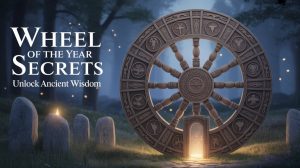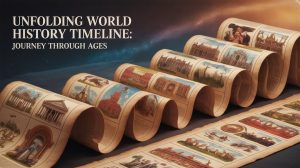The Oldest People in the Bible have long captured the imagination of scholars, theologians, and everyday readers. Unlike today, where human lifespans typically range between 70 and 90 years, the Bible records individuals who lived for hundreds of years—some nearly reaching a millennium. These accounts challenge modern concepts of life expectancy and open doors to rich discussions about faith, divine purpose, history, and spiritual legacy.
This article surveys the lives of the 10 oldest people in the Bible, examining their extraordinary ages, the significance behind their longevity, and how their stories continue to influence spiritual thought. Whether you’re a believer seeking inspiration, a student of theology, or simply curious about ancient history, these biblical figures will leave you in awe of their enduring legacy.
Top 10 Oldest People in the Bible
| Name | Age | Biblical Reference | Significance |
|---|---|---|---|
| Methuselah | 969 | Genesis 5:27 | Longest living human in the Bible |
| Jared | 962 | Genesis 5:20 | Ancestor of Noah |
| Noah | 950 | Genesis 9:29 | Survivor of the Flood, Ark builder |
| Adam | 930 | Genesis 5:5 | First man created by God |
| Seth | 912 | Genesis 5:8 | Righteous lineage after Abel |
| Kenan (Cainan) | 910 | Genesis 5:14 | Preserved the godly line |
| Enosh | 905 | Genesis 5:11 | Began public worship of God |
| Mahalalel | 895 | Genesis 5:17 | A faithful link in the genealogy |
| Lamech (Noah’s father) | 777 | Genesis 5:31 | Prophesied relief through Noah |
| Enoch | 365 | Genesis 5:24 | Walked with God, taken to heaven |
Oldest People in the Bible and Their Significance
The Oldest People in the Bible lived for centuries, with lifespans far beyond what we know today. Their remarkable ages carry deep spiritual meaning, connecting generations from Adam to Noah. Each figure represents God’s plan, patience, and faithfulness, illustrating how life was intricately tied to divine purpose. Studying their stories reveals lessons of endurance, legacy, and the importance of walking with God.
1. Methuselah: The Longest Living Man in History
- Age: 969 years
- Biblical Reference: Genesis 5:27
Methuselah is the most recognized among the Oldest People in the Bible, living an astonishing 969 years, making him the longest-living human recorded in Scripture. His name is often interpreted as “his death shall bring judgment,” linking his passing to the onset of the Great Flood.
Significance
- His lifespan bridged two pivotal eras: the pre-Flood civilization and the story of Noah.
- Methuselah’s life is a testimony to God’s patience and mercy, as judgment was withheld until his death.
- His longevity has sparked both theological and scientific debates, with some viewing it as symbolic while others see it as literal.
Legacy
- His name has become synonymous with endurance and extreme old age.
- Methuselah reminds us that even long lives are temporary, but the purpose behind them carries eternal significance.
- Many scholars note that his death marked the timing of the Flood, showing that God’s judgment is deliberate and purposeful.
2. Jared: A Pillar of Generational Faith
- Age: 962 years
- Biblical Reference: Genesis 5:20
Jared, the father of Enoch, lived 962 years and played an essential role in preserving the lineage that connected Adam to Noah.
Significance
- His son, Enoch, is one of the most unique figures in the Bible because he did not experience death but was taken directly by God.
- Jared’s life exemplifies the importance of spiritual inheritance, demonstrating how faith can be passed down across generations.
Lessons from Jared’s Life
- Families play a central role in shaping faith and character.
- Even if Jared’s story isn’t filled with dramatic events, his role in maintaining the continuity of God’s plan is invaluable.
- His long lifespan ensured stability during the centuries preceding Noah’s time.
3. Noah: Builder of the Ark
- Age: 950 years
- Biblical Reference: Genesis 9:28–29
Noah is one of the most famous biblical figures, remembered for building the Ark and surviving the Flood. He lived 950 years and was described as a righteous man who “found favor in the eyes of the Lord” (Genesis 6:8).
Key Highlights
- Noah lived during an age of extreme corruption, yet he remained faithful.
- His obedience in building the Ark preserved humanity and countless species.
- He became the father of all post-Flood generations, making him a central ancestor to humankind.
Spiritual Lesson
- Noah’s life teaches the importance of faith, trust, and perseverance in God’s plan.
- His story demonstrates that one faithful person can change the course of history.
- The rainbow covenant given to Noah serves as a symbol of God’s mercy and promise never to destroy the earth with water again.
4. Adam: The First Human
- Age: 930 years
- Biblical Reference: Genesis 5:5
Adam is both the first man and one of the longest-living, reaching 930 years. He was created directly by God and lived to see many generations of his descendants.
Significance
- Adam’s creation marks the beginning of humanity, as it was made in the image of God.
- His disobedience in the Garden of Eden introduced sin and mortality into the world.
- Adam’s life connects the perfection of creation with the painful consequences of sin.
Legacy
- Adam’s long life allowed him to witness the unfolding of human civilization personally.
- His story reminds humanity of both its divine potential and its vulnerability to failure.
- Even in his fall, Adam’s role laid the foundation for the coming of Christ, the “second Adam.”
5. Seth: The Appointed Son
- Age: 912 years
- Biblical Reference: Genesis 5:8
After Abel’s death, Seth was born as the “appointed” son, chosen to continue the godly lineage.
Significance
- His birth restored hope after Cain’s rebellion.
- Through Seth’s line, faith and worship were preserved.
Legacy
- Seth represents God’s plan to bring redemption and renewal even after tragedy.
- His descendants carried the spiritual heritage that led to Noah and beyond.
- His life highlights the theme of new beginnings and divine restoration.
6.Kenan (Cainan): A Faithful Link
- Age: 910 years
- Biblical Reference: Genesis 5:14
Kenan, the grandson of Seth, lived 910 years and is often overlooked. Yet his life was essential in maintaining the line of faith.
Role in Biblical History
- Kenan ensured the preservation of Adam’s godly heritage.
- His quiet presence highlights the significance of ordinary yet faithful lives in God’s plan.
Lessons
- Not all faithful people are famous, yet their contributions matter.
- Kenan’s story shows that God values continuity, patience, and consistency in faith.
7. Enosh: Worship Begins Again
- Age: 905 years
- Biblical Reference: Genesis 5:11
Enosh, the son of Seth, is best remembered for initiating public worship of God.
Key Point
- Genesis 4:26 records: “At that time, people began to call upon the name of the Lord.”
- This moment signifies a turning point where collective devotion to God was restored.
Legacy
- Enosh’s life shows that faith is not just personal but also communal.
- His era marked the beginning of a spiritual awakening that would shape future generations.
8. Mahalalel: A Bridge of Faith
- Age: 895 years
- Biblical Reference: Genesis 5:17
Though less well-known, Mahalalel lived 895 years and played a vital role in carrying forward Adam’s lineage.
Importance
- His story reflects the silent preservation of faith.
- His name means “praise of God,” suggesting his life was marked by devotion.
Lessons
- Even those not in the spotlight have significant roles in God’s plan.
- Mahalalel represents the hidden heroes of faith who safeguard spiritual heritage.
9. Lamech: A Father of Hope
- Age: 777 years
- Biblical Reference: Genesis 5:31
Lamech, father of Noah, lived 777 years and is remembered for prophesying hope through his son.
Symbolism
- His words: “This one shall obtain us relief from our work and the painful struggle of our hands” (Genesis 5:29) foretold Noah’s role.
- His shorter lifespan compared to his ancestors symbolizes the decline in human longevity.
Legacy
- Lamech stands as a father of promise, pointing to salvation through Noah.
- His life spans the era of long-lived patriarchs and the impending judgment of the Flood.
10. Enoch: Walked with God
- Age: 365 years
- Biblical Reference: Genesis 5:24
Enoch is unique because he did not die. The Bible records: “Enoch walked with God, and he was not, for God took him.”
Significance
- His 365 years symbolize completion and fullness (matching the days of a solar year).
- Enoch is celebrated for his close fellowship with God.
Legacy
- Enoch became a symbol of eternal life and divine approval.
- His story proves that spiritual intimacy with God is more important than physical longevity.
- He foreshadows the Christian belief in resurrection and eternal life.
Why Did People Live So Long in the Bible?
Scholars and theologians have offered multiple interpretations:
- Divine Purpose: Long lives symbolized God’s patience and mercy.
- Historical Function: Enabled knowledge and faith to be preserved across many generations.
- Spiritual Meaning: Emphasized the importance of legacy, obedience, and worship.
Theological and Historical Importance
- Continuity of Faith: Their lives ensured God’s message carried through centuries.
- Spiritual Symbolism: Longevity symbolized God’s grace before judgment.
- Cultural Significance: These accounts shaped Jewish and Christian traditions about life, sin, and redemption.
Conclusion
The Oldest People in the Bible were more than individuals with long lifespans—they were symbols of faith, resilience, and divine purpose. From Methuselah’s legendary 969 years to Enoch’s extraordinary walk with God, each story reveals lessons about human destiny and God’s plan.
Their ageless legacy reminds us that while earthly life may fade, spiritual faith and obedience leave an eternal impact. These biblical legends continue to inspire millions, standing as timeless testaments of God’s relationship with humanity.
Frequently Asked Questions(FAQs)
Who was the oldest person in the Bible?
Methuselah, who lived 969 years (Genesis 5:27).
Why did people in the Bible live so long?
Their longevity symbolized God’s patience, divine blessing, and generational continuity.
Did lifespans shorten after the Flood?
Yes, lifespans significantly decreased after the time of Noah.
Who was taken to heaven without dying?
Enoch, who “walked with God” (Genesis 5:24).
What lessons can we understand from the Oldest People in the Bible?
Faith, obedience, generational legacy, and the importance of walking closely with God.


